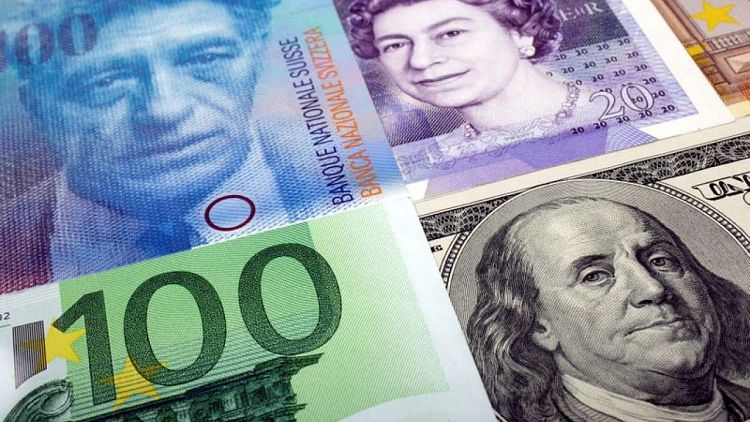By Dhara Ranasinghe
LONDON - The euro zone's pool of negative-yielding debt fell sharply last month, Tradeweb data on Friday showed, in the latest sign that bond investors are geting uneasy about rising inflation and the looming wind-down of central bank stimulus.
Debt markets from Britain to Germany and the United States have sold off sharply in recent weeks on a growing perception that inflation is proving stickier-than-anticipated. Both the Federal Reserve and Bank of England have taken markets by surprise with a hawkish shift.
Against this backdrop, the pool of negative-yielding euro-denominated government debt stood at 5.42 trillion euros ($6.29 trillion) at the end of September, down sharply from 6.4 trillion euros a month previously, Tradeweb data showed.
Negative-yielding debt comprised 59.8% of a total euro government bond market worth just over 9 trillion euros, falling from 69% of the market at the end of August.
This marks a sharp decline from late last year when as much as three-quarters of the euro debt market had negative yields. Back then the COVID-19 crisis weighed on economic activity, boosting demand for fixed income.
When bonds a have yield below 0%, investors are essentially paying the issuer to hold that bond, and stand to lose money if they hold that bond to maturity.
But the global economy has bounced back this year, aided by vaccination campaigns. And while European Central Bank stimulus is expected to remain in place for a long time to boost longer-term inflation prospects, justification for utlra-low yields has ebbed.
"French 10-year yields used to be negative and are back above 0%, so the volume of negative yielding sovereign debt is decreasing, and we think that even German Bund yields are very likely to break above 0% by the end of the year," said Althea Spinozzi, senior fixed income strategist, Saxo Bank.
France's 10-year bond yield, which broke above 0% in early September, is trading at 0.11%. Germany's 10-year Bund yield is at -0.24% and rose 19 bps in September in its biggest monthly jump since February.
Tradeweb data also showed the pile of negative-yielding euro investment-grade corporate bonds also dipped, to stand at 1.28 trillion euros at the end of September -- around 36% of a 3.5 trillion-euro market.
The pool of negative-yielding British government bonds was little changed at 649 billion pounds ($932 billion), 26% of the total market at the end of August.



